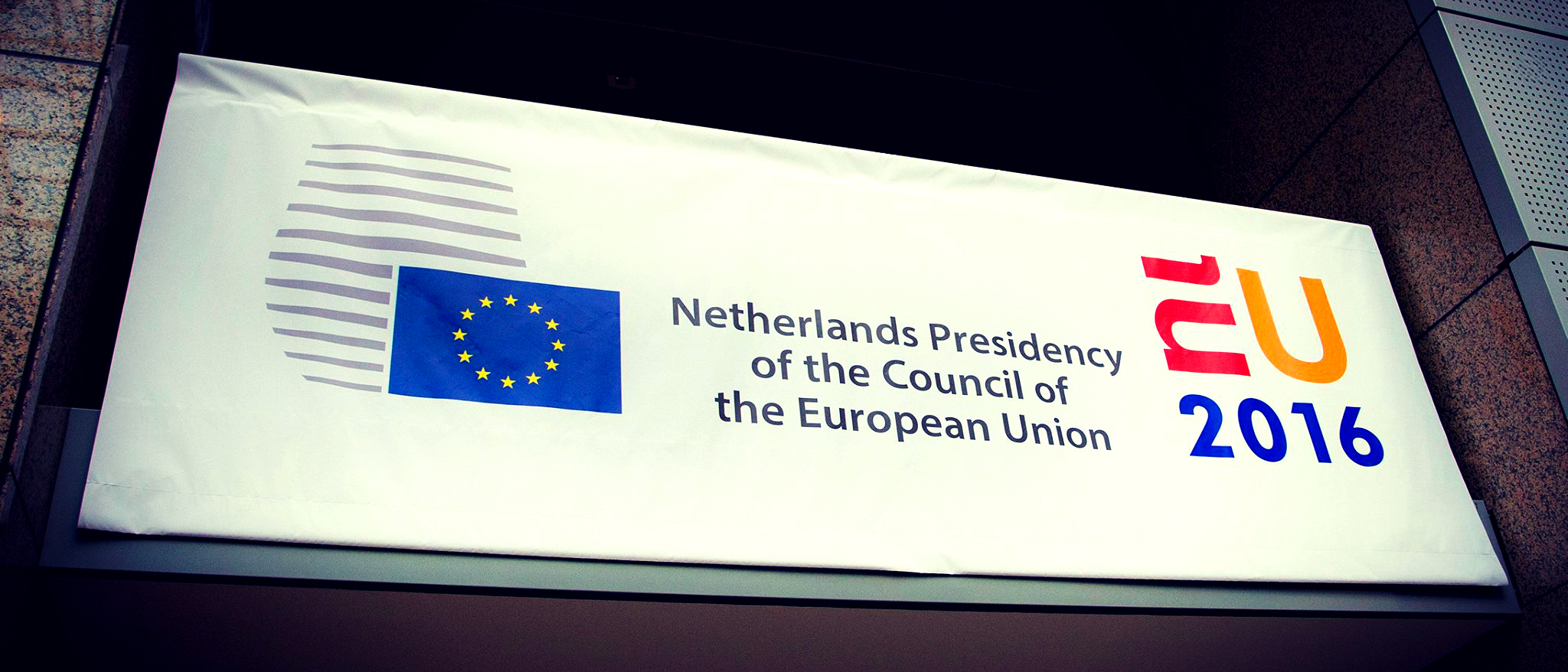
By Hester Mennes, Dutch EST Ambassador. Hester is in her second year of a Master in Social Sciences at the University of Amsterdam. She specializes in migration and integration and has a general interest in the political aspects of multicultural societies.

For the Netherlands, the start of 2016 also means the start of the Dutch presidency of the Council of the European Union. For the traditional period of six months, the Netherlands will preside many meetings regarding present-day EU-level issues, and aims ‘to mediate and seek compromises about decisions that the 28 EU member states have to make together’ (Dutch Ministry of Foreign Affairs, 2015).
Although official meetings of the Council will primarily take place in Brussels, the many preparatory, informal or more specific meetings that are planned for the upcoming period, will take place in the EST’s hometown Amsterdam, at its Marine Etablissement.
It is the 12th time that the Netherlands chairs the Council, and from a general perspective, the Dutch Ministry of Affairs has defined three themes that are to be highlighted and stimulated the upcoming six months: in the first place, a ‘Union focused on essentials’, to distinguish between matters to be individually dealt with by member states versus European-level matters. Secondly, ‘a Union focused on growth and jobs’, to ease trade between member states while efficiently protecting workers, and thirdly, ‘a Union that connects with citizens’, to involve citizens, companies and organizations in the period that awaits us.
What does this mean for the European Student Think Tank? It provides the Netherlands-based members of the EST a great opportunity for fieldwork. How does the shifting of presidency function, and does it actually guard the balance of power that it aims to achieve? And what does the presidency bring the Netherlands specifically? What different parties will benefit – or not – from the upcoming six months?
Also, are there specific differences regarding the preceding presiding role of Luxembourg and succession by Slovakia and Malta respectively? All questions that touch the core of the European policy-making system, and with the Amsterdam naval dockyard in the think tank’s backyard, the upcoming six months promise an interesting time ahead of us.
References:
- announcements
- Articles and Blogs
- EU Policy Process
- Geen categorie
- International Office articles
- Uncategorized

 The ’Ndrangheta’s Infiltration and Threat to European Institutions
The ’Ndrangheta’s Infiltration and Threat to European Institutions  From Paper to Practice: How Grassroots Norms Undermine Gender Rights in Pakistan
From Paper to Practice: How Grassroots Norms Undermine Gender Rights in Pakistan  Exploited Childhoods: The Role of Global Corporations in Perpetuating and Mitigating Child Labour
Exploited Childhoods: The Role of Global Corporations in Perpetuating and Mitigating Child Labour  Human Rights Challenges in Addressing SLAPPs in Media, NGOs and Journalism in the EU
Human Rights Challenges in Addressing SLAPPs in Media, NGOs and Journalism in the EU 


